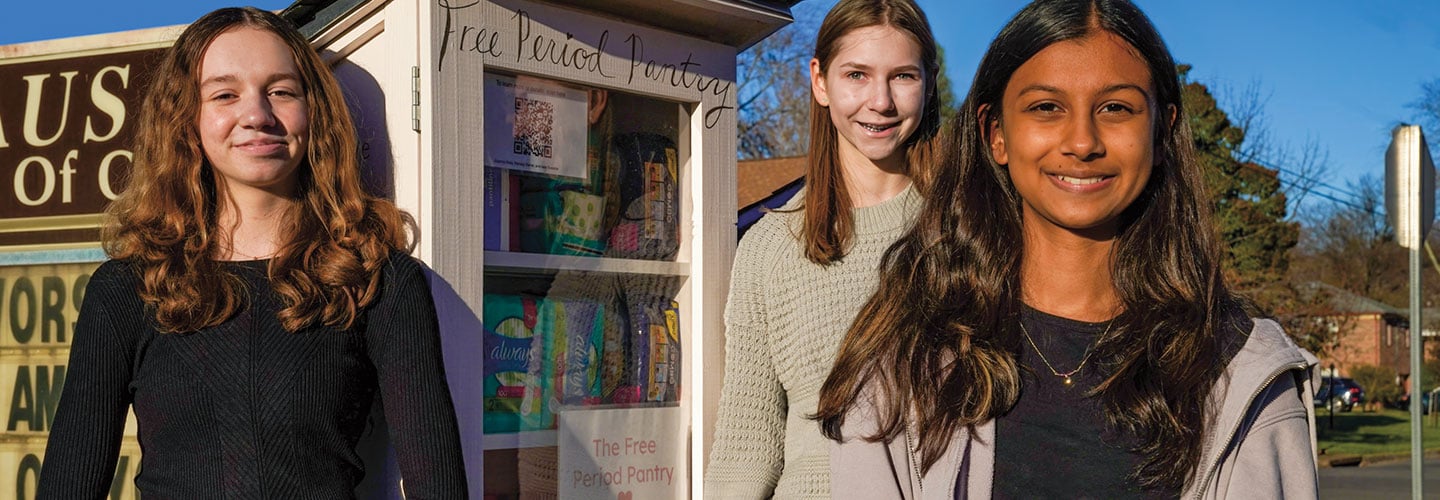Did you know that about a quarter of the world’s population gets a period? It’s true! But for many people, finding sanitary supplies like tampons and pads can be a struggle. These items aren’t always available in places like schools. They also can be expensive. Lack of access to sanitary supplies is known as period poverty.
Virginia teens Isabel Buescher, Ariyanna Ghala, and Ramsey Warner, all 15, believe that no one should have to experience period poverty. To raise awareness of the issue and ensure access to supplies in their community, they’ve built a cupboard, or pantry. They fill the pantry with free sanitary products for anyone who needs them. The teens explain why they created the free cupboard of supplies and why period poverty is a problem that affects us all.

